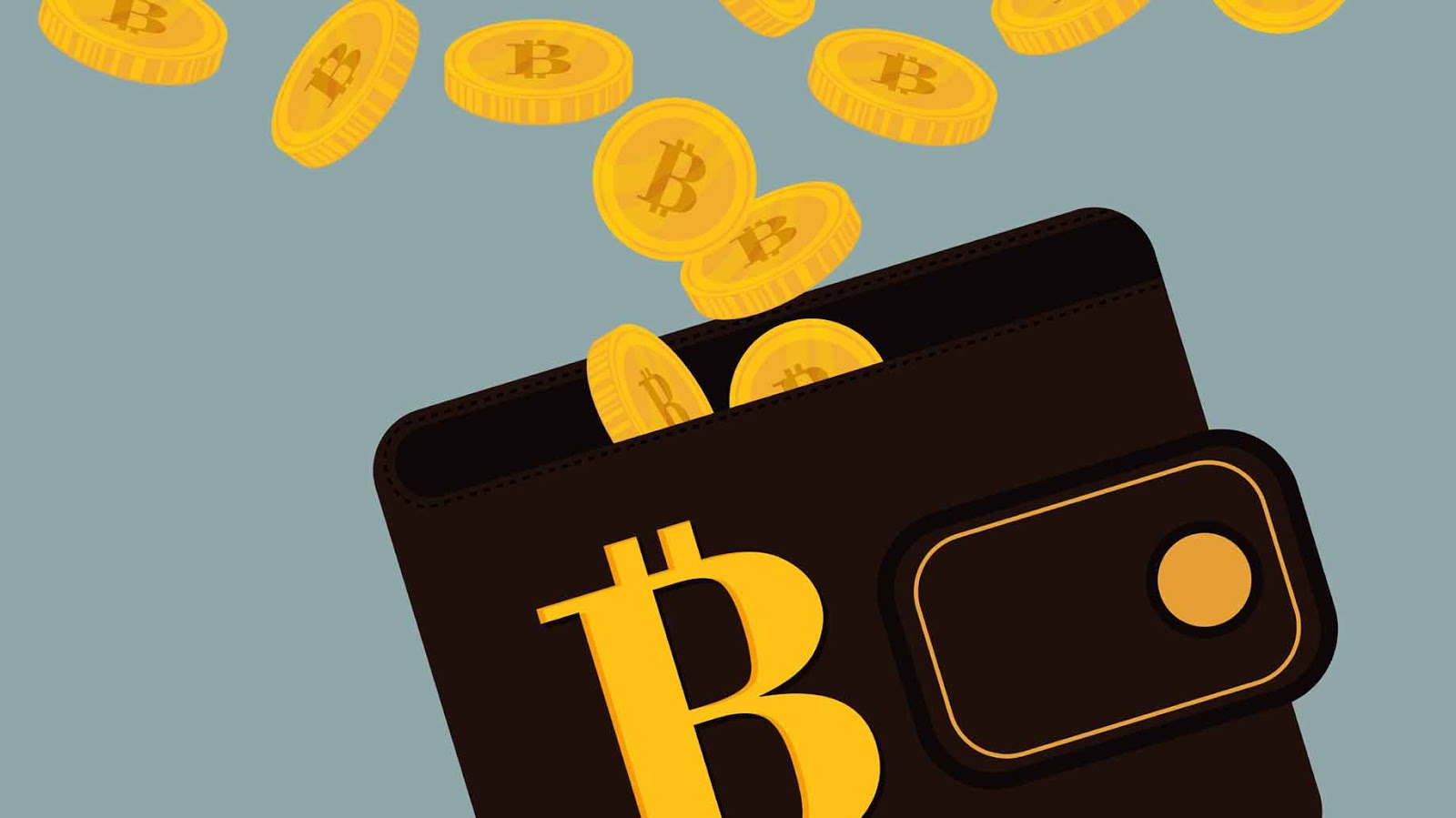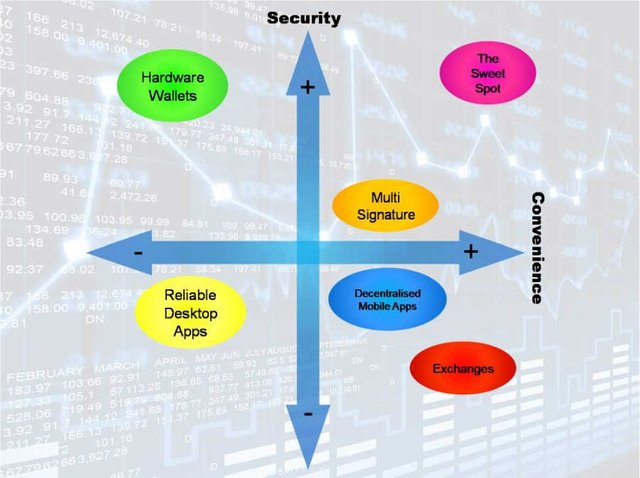What is a Custodial Cryptocurrency Wallet?

Storing your cryptocurrency in a wallet is something that requires much more thought and deliberation than 'What's the most convenient way for me to store my crypto?' as the issue you'll face is that with higher convenience comes greater risk (in the current state of things). Understanding what a custodial cryptocurrency wallet is, and how they function, will give you more basis to make a rational decision that will suit your needs.
When considering the tradeoffs, you'll need to evaluate the level of comfort you have with exposure to risk in contrast with your preparedness to currently work through a few things that are a little less convenient at this point in time. The infographic below places a few different options as they currently stand on a Cartesian coordinate system in relation to security and convenience.

The unfortunate reality is that with increased convenience we currently experience a reduction in comparative security with how cryptocurrencies are stored and protected. Be clear about this, the easier the option you choose the less security you'll currently have.
My personal preference is to opt for the higher security options which currently are a bit more cumbersome from a process perspective. But they are a lot less problematic for the very little time required to manage them compared to losing your wealth through what essentially is laziness.
As humans, we are generally inclined to take the path of least resistance (choosing the easy options), and we are creatures of habit (choosing to stick with what we already know). Cryptocurrency fundamentally challenges these two principles of human nature, and it is those who are able to overcome these rut-oriented mindsets who will be amongst the early adopters and the beneficiaries of the financial gains in the market over the long run. In short, I want you to think beyond what is easy to do here and protect your portfolio as a priority over the ease of use option.
Choosing A Hot Cryptocurrency Wallet
When we look at what are generally termed as hot wallets here, we are taking a deeper dive into specific types of wallets, namely custodial cryptocurrency wallets, multi-signature wallets, and hierarchical deterministic wallets. Each one of these will be explored in more detail as you read through the information below.
Custodial Cryptocurrency Wallets
As discussed in the opening of this article, the primary consideration to make when evaluating which type of cryptocurrency wallet to choose is to consider the dimensions of security. This article is provided to help you enhance your level of understanding so you feel more knowledgeable and suitably positioned to make an informed decision. As you dig deeper into the different layers of security-oriented considerations, you will also begin to see very strong parallels to privacy, and maintaining your privacy.
Custodial cryptocurrency wallets are wallets where the other party you are engaging with, another person or a corporate entity, have some level of control, albeit partial, over your private keys which are associated with this cryptocurrency wallet. In short, this means that you're not in full control the wallet and the funds within it. This is a direct result of you not being able to independently control the private keys.
When looking at the mechanics behind the transactional methodology underpinning these, the funds you place into these wallets can be seen to act like an IOU in lieu of the actual funds themselves.This then means that you are placing a substantial amount of trust in the party holding the private keys with regard to their honoring the IOU at the time you want to call it. Given the nature of some exchanges and their history, this may not be a wise move at all, let alone for the short term. Choose wisely grasshopper!
Multi-Signature Cryptocurrency Wallets
There tends to be slightly more confident with the use of a multi-signature wallet in that the party whom your funds are with do not have exclusive control over the entire dimension of your private keys. Multi-signature essentially means that this other party holds one or more of the keys required for a transaction which has been created to be approved, or validated before it proceeds any further.
The multi-signature methodology adds a layer of protection where your consent is required before your funds are able to be moved in the proposed manner. Effectively, no one is able to do anything with your funds unless you choose to approve the request. This may be in the form of a confirmation email, using a 2FA code, or a pin to name a few. This also adds a layer of protection in that generally speaking, the exchange or service behind the wallet cannot take your funds.
I have in the past been successful in getting an exchange that I set up an account with to deactivate my 2FA based on some arbitrary information I provided them. Anyone with a keylogger on the computer I was using at the time would have been able to easily do this, which causes me particular concern with this type of storage as a means to protect my wealth. My personal preference is to entrust my investment to a hardware wallet through which I control the private keys to my accounts.
If you are comfortable with the risk profile associated with a multi-signature wallet, you need to be certain that you have a record of the password and any issued private keys. Should you misplace or forget these, it is extremely unlikely that you will be able to get any recovery support from the organization behind the wallet. You are 100% responsible for securely protecting this level of data.
Hierarchical Deterministic (HD) Cryptocurrency Wallets
A description of the BIP 32 Standard with regard to HD wallets include, among other things, the seed being a random 128-bit value which is disclosed to the person setting the HD wallet up in the form of a set of 12 words which are in a specific sequence. These are commonly provided in English but are also available in a few other languages.
This string of 12 random words in a specific order leads to the generation of your unique private keys which are what you need in order to gain access to your secure wallet. It is critical that these words are recorded and kept secure as these are what will allow you to access your wallet and the funds within it.
Out of all the underpinning technologies and systems for the 'hot wallets' we have looked at here, the HD approach is quite possibly the most robust in that is it representative of a very strong security system, particularly when compared to the alternative in the custodial cryptocurrency wallets or the multi-signature cryptocurrency wallets.
This article was recenty posted on my website TechMagy and shared here with the Steemit community to add value.
The inspiration to write this was from a comment shared on the post Hot or Cold; What is the Best Bitcoin Wallet? by @dhimmel. Daniel Himmelstein has shown that he has a wealth of knowledge in the blockchain space and is a voice that I would humbly suggest you follow and listen to if you have an interest in crypto and the tech behind it.
Nice chart plotting the tradeoff between security and convenience. One addition I'd add is paper wallets, which are generally far more inconvenient than the options listed. And while paper wallets can be a secure method for longterm storage they have severe security drawbacks: